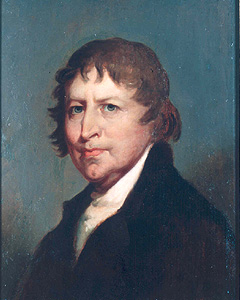The decision in Commonwealth v. Clapp, 4 Mass. 163 (1808) upheld a lower court’s denial of an accused’s request to show the truth of an alleged libel. The decision helps illumine state law prior to the application of the First Amendment to the states through the Fourteenth Amendment.
Clapp wanted to address truth of allegations he posted
Clapp had been convicted of criminal libel for posting a flyer accusing an auctioneer of being “a liar, a scoundrel, a cheat, and a swindler.” Clapp insisted on his right to address the truth of the allegations at trial.
Parsons said the definition of libel was ‘malicious publication’
In upholding the lower court’s denial of this privilege and affirming Clapp’s conviction, Judge Theophilus Parsons examined what publications should be considered libelous and why such libel was a criminal offense.
Parsons decided that a libel was “a malicious publication … tending either to blacken the memory of one dead, or the reputation of one who is alive, and expose him to public hatred, contempt, or ridicule.” Parsons believed such libel to be a criminal offense because it tended to breach the peace by provoking acts of revenge.
The “essence of the offence consists in the malice of the publication, or the intent to defame the reputation of another.” Under such circumstances, and contrary to the decision in the John Peter Zenger case in New York, “the defendant cannot justify himself for publishing a libel, merely by proving the truth of the publication.”
“Honest intention” could be defense to libel
Although Parsons refused to allow defendants to allege the truth in cases of criminal libel, he agreed that “the defendant may repel the charge, by proving that the publication was for a justifiable purpose, and not malicious, nor with the intent to defame any man.” An individual could thus request the legislature to remove an unworthy officeholder, and publications about candidates for public office “with the honest intention of informing the people, are not a libel.”
Just as criticism of public officials held importance, “the publication of falsehood and calumny against public officers, or candidates for public offices, is an offence most dangerous to the people, and deserves punishment, because the people may be deceived, and reject the best citizens, to their great injury, and it may be to the loss of their liberties.”
Truth was not a libel defense
Still “the publication of a libel maliciously and with the intent to defame, whether it be true or not, is clearly an offence against law, on sound principles, which must be adhered to, so long as the restraint of all tendencies to the breach of the public peace, and to private animosity and revenge, is salutary to the commonwealth.”
The Supreme Court cited the Clapp decision in White v. Nicholls (1845). Libel is no longer considered a criminal offence, and private libels of public officials are now governed largely by the standard established in New York Times Co. v. Sullivan (1964) whereby such official must establish “actual malice,” that is, that allegedly libelous statements about them were made knowing that they were untruthful or with reckless disregard for the truth.
John Vile is professor of political science and dean of the Honors College at Middle Tennessee State University. He is co-editor of the Encyclopedia of the First Amendment. This article was originally published in 2009.

